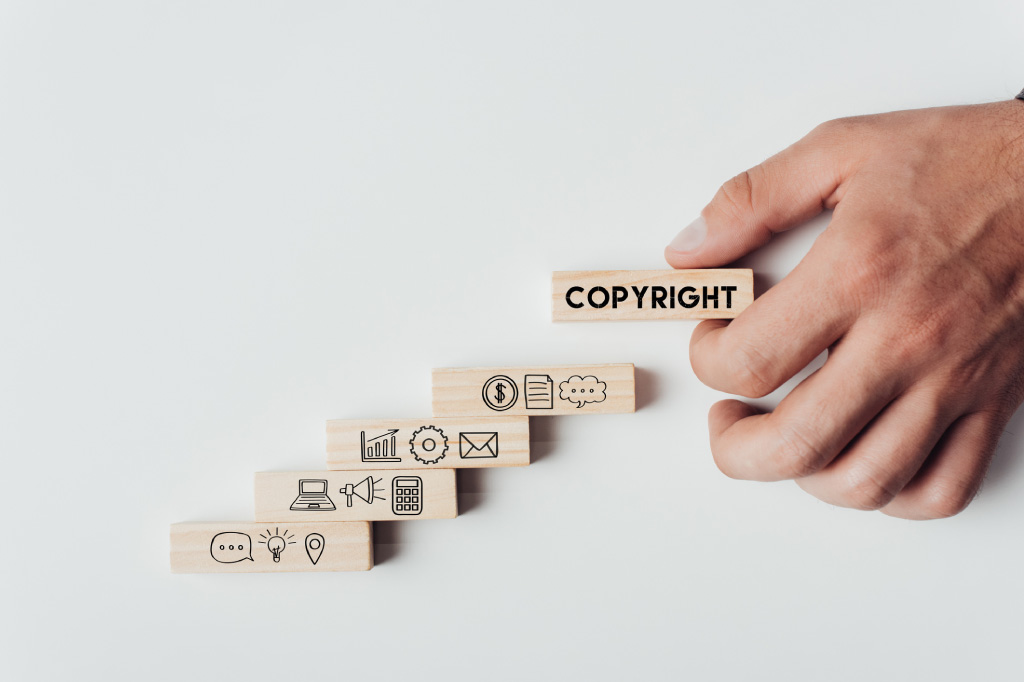Copyright is one type of Intellectual Property that provides valuable protection which we should not ignore. It is therefore critical for entrepreneurs to be well-versed in the basics of copyright protection and understand how their works can be protected, to manage the risk of the company’s assets which will be used by others. The better you understand the legal aspects of running a business, the less likely you are to make mistakes that could cause your startup to sink.
Copyright basics
So, what is copyright? Copyright law gives the owner the exclusive right to – among others – reproduce, distribute, perform and adapt an original work. Many people think copyright only covers books, but it is much more than that. Copyright covers a broad range of content forms including manuals, website content, advertising materials, sales brochures, software, drawings, guidelines, and also advertising jingles, training videos, sculptures, prints, movie scripts, musical works, and choreographic shows.
It is a common misconception that copyright – or any other Intellectual Property right – protects ideas. Copyright only covers the form of expression of the idea. For example, an article is protected by copyright in the sense that a third party cannot publish it. However, they could write an article on the same topic using their own words.
If you are the owner of some works, you have full control of its presentation and distribution. If a third party attempts to infringe on this copyright, you are likely to have legal recourse to file a lawsuit against that individual or company. As such, if you found that someone has infringed upon your copyright, you should take immediate action.
How to get copyright protection?
Unlike other IP rights, a copyright exists automatically, as soon as a work is created, and in most countries, there is no registration system at all. This is the case in Singapore where there is no Copyright Registry.
How to establish copyright?
As there is no registration process in most countries, it is critical for businesses to keep written records of who created the works and when. You should also consider recording copyright of key works in the jurisdictions which operate a copyright registration system. This evidence will support the grounds for an infringement action, if any.
It is recommended to add a copyright notice when publishing a work. That notice would include the © symbol, the year of production, as well as the name of the author of the work. Failure to use that copyright notice would however not affect the author’s rights in the work.
Who is the owner of the copyright?
The author of the work is the owner. However, there could be exceptions to this, for example, if the work has been created by an employee during the course of his or her employment. A very common problem with copyright is the failure of the company to obtain the assignment of the Intellectual Property rights to the product developed by the founders or an employee before the company is set up. This mistake could lead to serious complications that could be fatal to a business.
Can the rights be transferred to a third party?
Copyright can be transferred to a third party, but it can also be licensed – exclusively or not – by its rightful owners, subject to a possible payment of royalties.
What are the objectives of copyright law?
One of the aims of copyright is to pro
vide incentives for the creation of the works, but the ultimate beneficiary of copyright protection is society. The English Statute of Anne 1710 stated that copyright has been promulgated “for the encouragement of learning, by vesting the copies of printed books in the authors or purchasers of such copies, during the time therein mentioned.”
What is the term of protection of copyright?
As one of the aims of copyright law is to encourage human progress through the sharing of learning, copyright is granted for a limited period of time and after the expiration of this period, the works will fall into the public domain for everybody to use. The rules depend on the countries and the type of work, but in Singapore, the general rule is that copyright for literary, dramatic and musical works lasts for the lifetime of the author and 70 years thereafter. The good thing is, you do not need to worry about renewal.
At IPHub Asia, we commend your passion and perseverance as you start your business, and we can help you get protection for what is protectable, both in Singapore and overseas. Do get in touch for more details, or visit our website to know more about our services.









